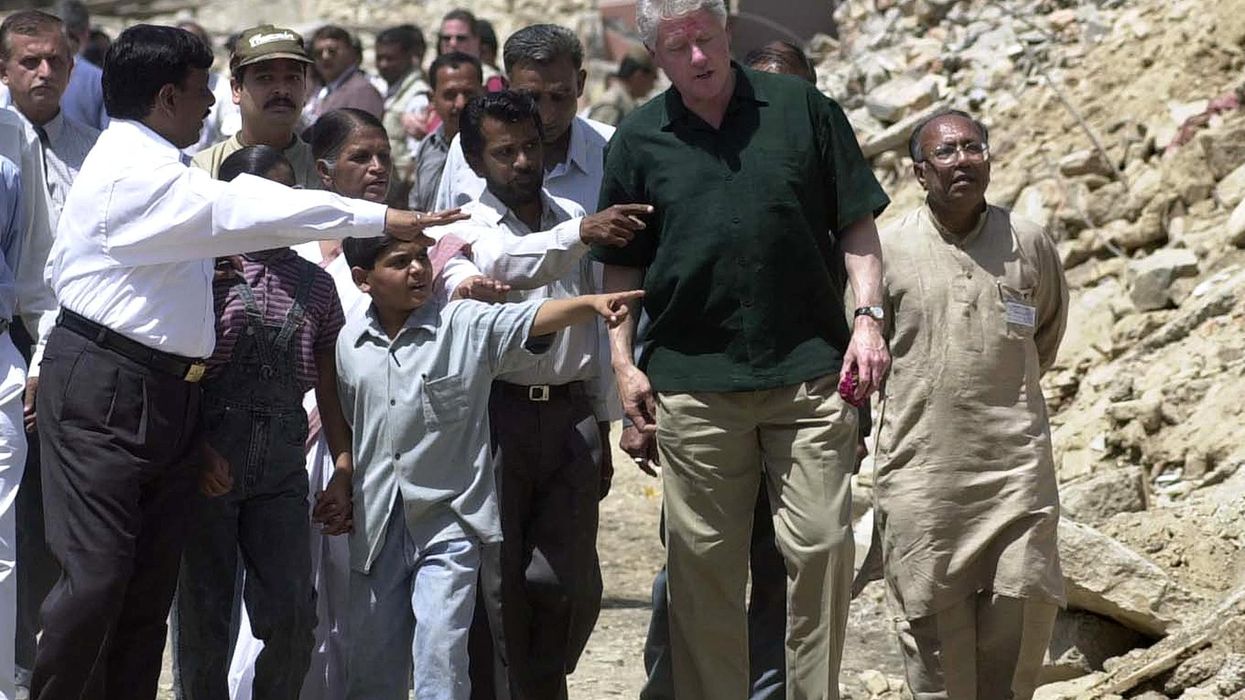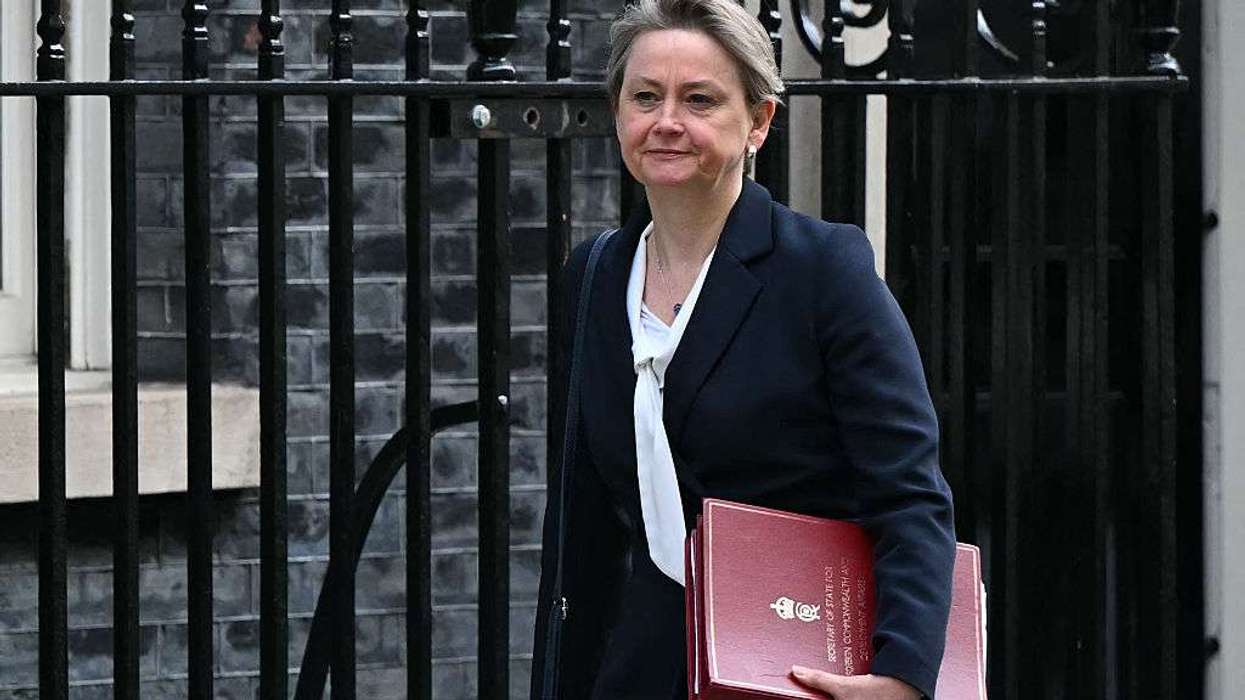FORMER US president Bill Clinton on Monday (25) expressed doubts over the realisation of Mahatma Gandhi’s dream of India as he noted internal differences in the country, particularly between Hindus and Muslims.
His observation was made in his latest book, Citizen: My Life After the White House, that hit the stores last week.
In it, the 78-year-old Democrat politician wrote, “Today, India is enjoying brisk growth and has become the world’s most populous country, but the persistence of internal divisions, especially between Hindus and Muslims, leaves open the question of whether Gandhi’s vision will ever be fully realised.”
Clinton recalled his visit to Gujarat after the devastating earthquake in 2001, including that to a hospital and his interaction with a group of Indian youth at the Gandhi Ashram in Ahmedabad.
With the help of some of Indian American friends in Silicon Valley, Clinton helped found the American India Foundation (AIF) that raised millions of dollars for quake victims and relief measures.
Clinton (right) bids farewell to a Missionaries of Charity sister after visiting Mother Teresa’s headquarters in Kolkata“Just six days after I left office, my first opportunity for post-presidential service came when a massive earthquake struck the Indian state of Gujarat, killing 20,000 people and destroying thousands of homes, schools, hospitals, health clinics, and other buildings in cities, towns, and small villages,” the former president wrote in a chapter, titled ‘The Man with No Face’.
“Because I had dealt with many natural disasters as governor and president, I called prime minister Atal Bihari Vajpayee and volunteered to help. I had a high regard for the Vajpayee government formed when we worked together to restore strong ties badly frayed by decades of Cold War strain,” Clinton wrote.
“He was a selfless, ascetic, lifelong bachelor who had kept in check the most destructive impulses of his Hindu nationalist party and supported the booming growth of India’s high-tech centres. Vajpayee had a clear grasp of the challenges ahead. He said he could repair the largest cities, but lacked the money and organisation to restore the towns and villages, many of which were wiped out. He asked me to help organise the Indian-American community to do that,” he wrote, adding that this resulted in the formation of AIF.
Clinton narrated an account of a visit to a hospital to meet the quake victims.
“As I made my way through the group, I noticed a man at the far end of the room, in a section not well-lighted. He was sitting on his bed talking to a woman I assumed was his wife. I glanced at him several times, wondering why he hadn’t come forward. When the man turned to see the goings-on, I understood why. He had no face,” Clinton wrote.
“A falling stone had sheared it away. His brows, nose, and lips were gone. I tried to imagine what he must feel, losing parts of himself essential to his health, to his ability to relate to others, to his very identity. Still, his gaze was steady and riveting. Whether he stayed in his bed because of embarrassment, pain, or both, I couldn’t know. But I knew there was still a person inside. I bowed to him slightly and returned to the people nearby,” he said.
“When I got to the door to leave, I looked at him again. This time he slowly raised his hand in greeting. I waved back, moved by the dignity and courage of a man still hanging on. His image stayed with me as I travelled to Ahmedabad to visit Mohandas Gandhi’s ashram and talk with young Indian leaders about whether Gandhi’s vision for India as a peaceful haven for all its people, regardless of their ethnic or religious heritage, could still become a reality,” Clinton wrote.
From Gujarat, Clinton said he went to Kolkata, to keep his promise to Mother Teresa before her death in 1997 to visit her Shishu Bhavan or Homes for the Children.
“As her successor toured me around, I saw many children with disabilities and others who appeared mixed-race, all either without parents or whose parents were too poor to take care of them. They had found a loving home,” he wrote.
Clinton (right) and Atal Bihari Vajpayee during a meeting at the White House in September 2000Clinton said AIF is still going strong. “(Founder) Lata Krishnan is still there and has been board co-chair for several years. Charity Navigator is highly rated and continues to attract strong support. Lata’s children were eight and eleven when she started with AIF. They grew up watching their mother, and supportive father, AJ, prove you can do well and make a difference to others. I had no idea what would happen when I started,” he said.
“But I’m grateful I had the chance to help them get organised to support their critical decision to work with dedicated local NGOs and to encounter the man with no face and feel the grace of his greeting. In many ways AIF was a precursor to the work I would do in the future, not only in other natural disasters, but in other Clin ton Foundation programmes and through the Clinton Global Initiative,” Clinton said.




